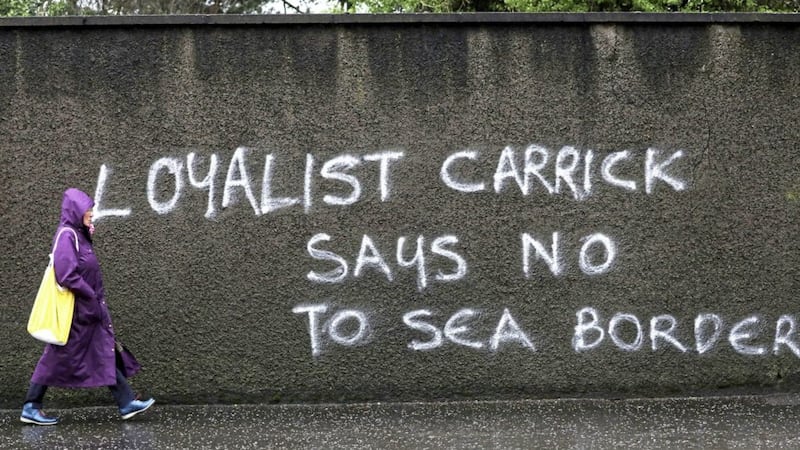THE strong wording of the letter by the Loyalist Communities Council was timed to try to appease hard-line factions who threatened to attack political offices and politicians seen to be supportive of the Northern Ireland Protocol.
Addressed to prime minister Boris Johnson, and signed by the chairman of the LCC, former Ulster Unionist David Campbell, it was to be released this weekend in a coordinated attempt to put pressure on the British government and calm loyalist tensions.
However, ahead of that The Irish News yesterday revealed details of the letter, which withdraws loyalist support for the Good Friday Agreement.
It states: "As signatories to the Belfast Agreement we entirely understand the strong representations from Irish nationalists that there should be no hard border on the island of Ireland.
"Equally. it should be self-evident that there should be no hard border, either physical or regulatory, between Northern Ireland and the rest of the United Kingdom.
"The protocol however gives effect to the Irish nationalist position at the expense of the unionist position.
"This renders it in variance with the agreement it purports to uphold and undermines the basis on which the Combined Loyalist Military Command (CLMC) agreed their 1994 ceasefire and subsequent support for the Belfast Agreement.
"Accordingly. I have been instructed to advise you that the loyalist groupings are herewith withdrawing their support for the Belfast Agreement and its institutions until our rights under the agreement are restored and the protocol is amended to ensure unfettered access for goods. services, and citizens throughout the United Kingdom.
"If the EU is not prepared to honour the entirety of the agreement then it will be responsible for the permanent destruction of the agreement".
It is understood the letter follows around two months of intensive, closed-door conversations with the leaderships of the three main loyalist paramilitary groups, the UDA, UVF and Red Hand Commando.
Since the implementation of sea border checks, the Irish News understands that those conversations have become increasingly tense, with fears that some factions of loyalism could stage attacks on politicians and political offices.
While there have been bomb alerts at Sinn Féin, SDLP and Alliance Party offices in recent weeks, they have all been declared hoaxes.
There have been increasing fears that live devices could be used against some politicians, particularly those with offices in areas perceived to be loyalist.
The strong wording of the LCC statement was intended to calm those who claimed the loyalist leaderships were failing to publicly represent the views of their members.
The LCC statement mixes language aimed at placating that hard-line faction while also stating they were "determined that unionist opposition to the Protocol should be peaceful and democratic".
"However, please do not under-estimate the strength of feeling on this issue right across the unionist family", it added.
"The only time I can remember such unanimity of opposition was following the imposition of the Anglo-lrish Agreement in 1985.
"The LCC is prepared to play a meaningful role in seeking a workable solution however a starting point has to be the acceptance that a hard border on the island of Ireland, or between Northern Ireland and the rest of the United Kingdom, has no cross-community support here and is therefore untenable.
"It must be patently obvious to you that the triggers detailed in Article 16 of the Protocol ie the extreme economic and societal difficulties now pertain and must be acted upon without further delay".








